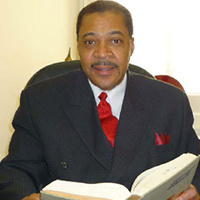 Reading RICO Act Lawyers, Pennsylvania
Reading RICO Act Lawyers, Pennsylvania
Sponsored Law Firm
-
 x
x

Click For More Info:
-
Ciccarelli Law Offices
Numerous Office Locations Available» view mapCriminal Defense Success Is Our Mission
You gain the resources of a Team with 100 years of combined experience fighting for their clients throughout Pennsylvania.
888-240-0896
Not enough matches for Reading RICO Act lawyer.
Below are all Reading Criminal lawyers.
Sponsored Lawyers
1-10 of 23 matches
Criminal, DUI-DWI, Traffic
Located in the City of Reading, Berks County, Pennsylvania, Curtis E. Barnes is a skilled criminal defense attorney representing individuals charged with criminal offenses and traffic violations. In addition to Berks County, he also represents clients throughout southeastern Pennsylvania including Chester, Lancaster, Lebanon, Montgomery, Philadelphia and Schuylkill counties. Following admission to the bar, Mr. Barnes worked as an assistant district attorney with the Berks County District Attorney's Office for more than three years. As an assistant district attorney, he gained extensive experience prosecuting criminal and DUI cases at every level from preliminary arraignment through bench and jury trials. In addition to developing the legal knowledge and trial skills necessary for an effective defense practice, his position as an assistant district attorney gave him the opportunity to cultivate personal relationships with local courts and government authorities. After leaving the District Attorney's Office, Mr. Barnes established a private practice focusing primarily on the defense of persons charged with crimes, as well as, driving under the influence and other traffic violations. As a former prosecutor, Mr. Barnes witnessed from a first-hand perspective how the power of the State can impact upon a person's life. For that reason, it is his belief that the individual rights we enjoy as citizens of the Commonwealth of Pennsylvania and of the United States of America should be vigorously defended.
(more)Criminal, Personal Injury, Estate, Real Estate
Angelo graduated from St. Joseph’s University, Philadelphia PA, with a Bachelor of Science in Political Science, Latin American Studies and Economics in 1975 and graduated from Georgetown University Law Center in 1978. After graduation, Angelo worked as a Compliance Officer for United National Bank in Washington, DC and Chase Manhattan Bank in New York, and in the Business and Finance and Real Estate Departments at Ballard, Spahr, Andrews & Ingersoll in Philadelphia. In 1989, he began his private practice. His practice is focused primarily on criminal defense and civil rights litigation, and Probate, Estates, personal injury and real estate law and litigation. He has extensive trial experience and has obtained both acquittals in criminal matters and substantial settlements for his clients whose civil rights have been violated. Angelo is admitted to practice in Pennsylvania, the U.S. District Court for the Eastern District of Pennsylvania, the U.S. Court of Appeals for the Third Circuit, the U.S. Tax Court, and the Supreme Court of the United States. His professional affiliations include and have included the Philadelphia Bar Association, the Barristers Association of Philadelphia, the Pennsylvania Trial Lawyers Association, and the Pennsylvania Bar Association. He is a Certified Arbitrator with the Philadelphia Stock Exchange, the NASD, the NYSE and the Philadelphia County Court of Common Pleas, as well as the U.S District Court for the Eastern District of Pennsylvania. He also serves as a redress attorney for the Pennsylvania NAACP.
(more)Criminal, DUI-DWI, Accident & Injury, Divorce & Family Law, Traffic
My name is Peter J. McHugh and for years I’ve been protecting the rights of people just like you — people whose reputations, livelihoods, and assets can be protected by taking legal recourse. Maybe you made one error in judgment. Maybe you found yourself in the wrong place at the wrong time. Maybe someone is trying to take advantage of you. Regardless of your circumstances, you have rights that no one can take away … rights that allow you to defend yourself and fight for what you feel is right … rights which you may not even be aware of. More times than not, professional legal representation is an option worth pursuing to protect you and uphold your rights. Call today and I’ll promptly meet with you to learn about your situation and provide an honest, upfront assessment as to whether pursuing legal action would be in your best interest.
(more)


 Lee Ciccarelli West Chester, PA
Lee Ciccarelli West Chester, PA AboutCiccarelli Law Offices
AboutCiccarelli Law Offices Practice AreasSpecializations
Practice AreasSpecializations



